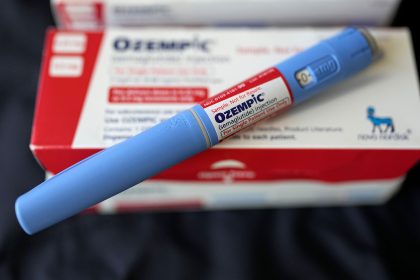Step-by-Step Guide to Increasing Your Step Count, Improving Your Health

WASHINGTON — As we approach the new year the days get colder, icier and shorter, depending on where you live. Probably, the last thing you want to do is go outside for a walk. At the same time, fitness trackers are on sale and telling you to get 10,000 steps a day.
The battle between increasing your steps and curling up on the couch intensifies. Take a break from wondering and get the facts. We’ll tell you where “10,000 steps” originated, update you on the latest research, explain why you should walk more and give you some tips on how to increase your step count.
How Many Steps Do You Need?
With information flying at you from all directions and New Year’s resolutions around the corner, it’s time to discover the truth.
History of the 10,000 Steps Goal
You may have heard that you need to walk 10,000 steps a day. But where did that number come from?
In 1965, in Tokyo, Japan, Dr. Yoshiro Hatano believed getting 10,000 steps would help Japanese people increase their activity to help prevent cardiovascular disease. The Yamasa company launched a fitness tracker called Manpo-kei, which means “10,000 steps meter.” The product and the goal became popular after the Tokyo Olympics.
From Manpo-kei to Fitbit and the Apple Watch, fitness trackers have stayed on the market through the years.
The Latest Research
Though 10,000 steps may have some marketing-based origins, walking more in general is good for you. Nowadays, Americans only get an average of 3,000-4,000 steps daily. Being sedentary is a leading cause of health issues.
Many studies throughout the years have tried to nail down the perfect number.
Dr. I-Min Lee did a four-year study on the association between walking and the risk of all-cause mortality in 17,000 older women. The study was published in 2019 in the Journal of the American Medical Association. Lee found that women who took at least 4,400 steps a day had a lower risk of dying than those who took 2,700 steps a day.
People who took more than 4,400 steps a day continued to have a lower risk of dying but benefits seemed to level off at 7,500 steps a day.
The Bottom Line
The most recent study suggests that taking more daily steps can improve your health and reduce your risk of dying from cardiovascular and other diseases. For older or less active people, 7,500 steps a day may be a high enough goal.
How Walking Improves Your Health and Fitness
Here are a few more reasons to walk more:
- Improves Cardiovascular Health: The American Heart Association recommends Americans get 150 to 300 minutes of moderate-intensity aerobic exercise per week to prevent cardiovascular diseases.
- Helps Prevent Osteoporosis: Walking is a weight-bearing form of cardio exercise. Along with resistance training and good nutrition, it’s a recommended way to prevent osteoporosis by keeping your bones strong.
- Burns Calories: Burning calories means expending energy, which can help you with a weight-loss goal. Walk at a moderate pace for a longer period of time or take a shorter but faster walk to boost your energy output.
- Boosts Mental Health: Many studies show that regular exercise can reduce symptoms of anxiety and depression by improving self-esteem and cognition.
Easy Ways to Walk More
Here are some tips to start walking more:
- Track Current Steps: The first step is to find out how much you currently walk. Your phone may already be tracking your steps. You can also get a pedometer or fitness tracker for more accuracy.
- Set Incremental Goals: Take it slow. If you’re only getting 2,000 steps a day, aim for 3,000 steps a day for the next week. Add 1,000 each week until you reach your goal.
- Get the Right Shoes: Well fitting, supportive shoes will help you walk better. Ask your doctor or podiatrist to observe your walk and recommend a brand.
- Schedule Your Walks: Check your schedule and find realistic times when you can add in a walk. Even the busiest people can find a 30-minute slot. If you have a baby, bring them along in a stroller.
- Walk More During the Day: Moving more throughout your day, outside of a structured walk, can also increase your step count. Take the stairs, choose a farther parking spot or simply get up from your desk and walk around the room.
- Listen to Music, Podcasts or Audiobooks: If you’re walking alone, adding some auditory stimulation can make your walk more enjoyable.
- Walk Together: Make it a social activity and walk with family, friends or co-workers. You can get your steps in and a mental health boost from spending time with people you care about.
- Get Outside: Walking in nature can further boost your mood. Even as we head to the depths of winter, bundle up and get some fresh air and sunlight.
More Steps Are Good Steps
If you enjoy having a specific goal, research shows that 7,500 steps will keep your heart healthy. If you are already a more active person, 10,000 steps a day or even more may make sense for you. It’s not a one-size-fits-all recommendation.
For everyone who can walk, the bottom line is that walking more can boost your physical and mental health. Lace up your shoes (or winter boots) and head outside!
You can reach us at [email protected] and follow us on Facebook and X (formerly known as Twitter)

























